
Securing Online Transactions: GABB Sept. 28
When you’re transmitting a large sum of money electronically, how can you be sure your money gets to the right place?
Ricky Robertson, Atlantic Capital Bank’s Operational Risk Manager, discussed ways that businesses you can protect themselves and their clients from wire transfer fraud at the Sept. 28 meeting of the Georgia Association of Business Brokers.
A closing should mean that the seller gets paid. Usually, the buyer wires in their down payment, the attorney develops and sends out a closing statement the day before the closing, and everyone agrees with his/her numbers. Unfortunately, a buyer will sometimes send over wiring instructions via email and those instructions get phished and the instructions end up in the wrong place! The buyer or the seller may lose their money; in some cases, millions of dollars.
View the discussion at this link.
Among the horror stories that emerged from the Sept. 28 discussion was that of a payment of more than a million dollars that a bank client asked be electronically transmitted to a vendor. The bank called to confirm that the client wanted to make the payment, but it turned out that the payment was not sent to a vendor but to a third party online thief. Fortunately, Robertson said, the bank was able to recover the money because of a mistake made by the thief.
Lesson learned: if something doesn’t sound right, don’t hesitate to call and double- and triple-check the facts. Too often humans want to be accommodating and agreeable, and thieves exploit that tendency, Robertson said.
Some scam artists gain access to a person’s email account, creating invisible folders, and get to know a target’s email habits. They may learn that a large payment is pending. Then they use their knowledge by sending fake emails with directions for transmitting funds.
Brian Harper, Senior Vice President and SBA Division Manager of Atlantic Capital Bank also talked about his bank’s upcoming merger with SouthState Bank.

Ricky Robertson, Atlantic Capital Bank’s Operational Risk Manager
Ricky Robertson began his career in law enforcement and spent six years as a detective concentrating mostly on investigating white collar crime. During his time in law enforcement, Ricky completed computer forensic investigations and served as the commander of the crisis negotiation team. Over the past 14 years, Ricky has worked in banking in the Information & Corporate Security fields. As Atlantic Capital Bank’s Operational Risk Manager, Ricky’s main job responsibilities include Corporate Security, Information Security, and Operational Risk. He has a Bachelor’s degree in Management Information Systems and earned the Certified Protection Professional certification from ASIS International.
Mr. Harper has more than 25 years of business banking and lending experience and ample experience handling multi-million dollar transactions. He is a member of the Rotary Club of Dunwoody, Junior Achievement, Georgia Lenders Quality Circle, National Association of Government Guaranteed Lenders, the Georgia Association of Business Brokers, Our Lady of Assumption Church, is a coach for Murphey Candler Baseball and a board member of the Georgetown Recreation Center.
Claudia Wilson, Vice President, SBA Relationship Manager at SouthState Bank, is sponsoring the meeting.
The GABB is the state’s preeminent organization of professionals involved in the purchase and sale of businesses and franchises, and operates the state’s only real estate school devoted to business brokering. For more information about the GABB, contact GABB president Judy Mims at judy@childcare.properties or at 404-918-3666; or email diane.loupe@gabb.org or text 770-744-3639.
Read More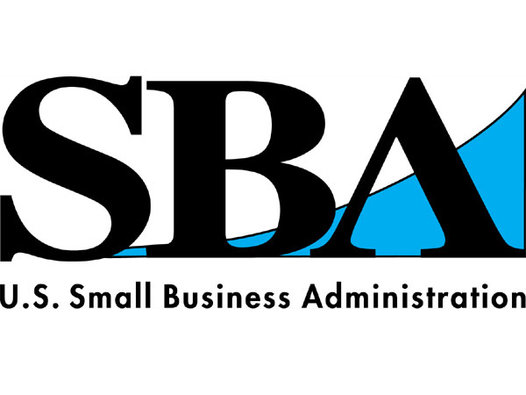
SBA to Increase Lending Limit for COVID-19 Economic Injury Disaster Loans
WASHINGTON – The U.S. Small Business Administration is increasing the maximum amount small businesses and non-profit organizations can borrow through its COVID-19 Economic Injury Disaster Loan (EIDL) program. Starting the week of April 6, 2021, the SBA is raising the loan limit for the COVID-19 EIDL program from 6-months of economic injury with a maximum loan amount of $150,000 to up to 24-months of economic injury with a maximum loan amount of $500,000.
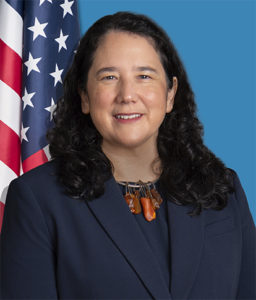
Isabella Casillas Guzman is the 27th Administrator of the U.S. Small Business Administration (SBA)
“More than 3.7 million businesses employing more than 20 million people have found financial relief through SBA’s Economic Injury Disaster Loans, which provide low-interest emergency working capital to help save their businesses. However, the pandemic has lasted longer than expected, and they need larger loans. Many have called on SBA to remove the $150,000 cap. We are here to help our small businesses and that is why I’m proud to more than triple the amount of funding they can access,” said SBA Administrator Isabella Casillas Guzman.
Businesses that receive a loan subject to the current limits do not need to submit a request for an increase at this time. SBA will reach out directly via email and provide more details about how businesses can request an increase closer to the April 6 implementation date. Any new loan applications and any loans in process when the new loan limits are implemented will automatically be considered for loans covering 24 months of economic injury up to a maximum of $500,000.
This new relief builds on SBA’s previous March 12, 2021 announcement that the agency would extend deferment periods for all disaster loans, including COVID-19 EIDLs, until 2022 to offer more time for businesses to build back. In order to shift all EIDL payments to 2022, SBA will extend the first payment due date for disaster loans made in 2020 to 24-months from the date of the note and to 18-months from the date of the note for all loans made in the calendar year 2021.
Questions about SBA COVID-19 EIDL and disaster loan payments can be emailed to DisasterCustomerService@sba.gov or directed to SBA’s Customer Service Center at 1-800-659-2955 (1-800-877-8339 for the deaf and hard of hearing).
The Georgia Association of Business Brokers has many members who are experts in SBA loans. Consult our affiliated professionals directory for help.
###
About the U.S. Small Business Administration
The U.S. Small Business Administration helps power the American dream of business ownership. As the only go-to resource and voice for small businesses backed by the strength of the federal government, the SBA empowers entrepreneurs and small business owners with the resources and support they need to start, grow or expand their businesses, or recover from a declared disaster. It delivers services through an extensive network of SBA field offices and partnerships with public and private organizations. To learn more, visit www.sba.gov.
Read More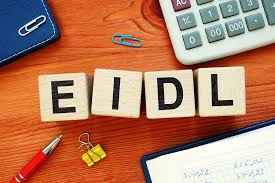
SBA Extends Deferment Period for all COVID-19 EIDL and Other Disaster Loans until 2022
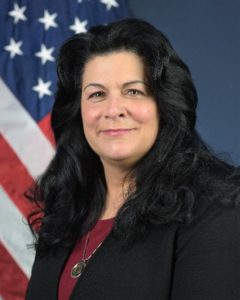
SBA Administrator Tami Perrillo
WASHINGTON –The U.S. Small Business Administration announced extended deferment periods for all disaster loans, including the COVID-19 Economic Injury Disaster Loan (EIDL) program, until 2022.
- All SBA disaster loans made in calendar year 2020, including COVID-19 EIDL, will have a first payment due date extended from 12-months to 24-months from the date of the note.
- All SBA disaster loans made in calendar year 2021, including COVID-19 EIDL, will have a first payment due date extended from 12-months to 18-months from the date of the note.
Existing SBA disaster loans approved prior to 2020 in regular servicing status as of March 1, 2020, received an automatic deferment of principal and interest payments through December 31, 2020. This initial deferment period was subsequently extended through March 31, 2021. An additional 12-month deferment of principal and interest payments will be automatically granted to these borrowers. Borrowers will resume their regular payment schedule with the payment immediately preceding March 31, 2022, unless the borrower voluntarily continues to make payments while on deferment. It is important to note that the interest will continue to accrue on the outstanding balance of the loan throughout the duration of the deferment.
“Small Businesses, private nonprofits and agricultural enterprises, including those self-employed individuals, contractors and gig workers, continue to navigate a very difficult economic environment due to the continued impacts of the Coronavirus COVID-19 pandemic, as well as historic Severe Winter Storms in 2020,” SBA Administrator Tami Perrillo said.
“The COVID-19 EIDL program has assisted over 3.7 million of small businesses, including non-profit organizations, sole proprietors and independent contractors, from a wide array of industries and business sectors, through this challenging time,” continued Perrillo.
SBA continues to strive to make available all previously approved Coronavirus Pandemic stimulus funding and administer the new targeted programs related to provisions in the 2020 Economic Aid to Hard-Hit Small Businesses, Nonprofits, and Venues Act (the Economic Aid Act) as quickly as possible.
“The American people and the nation’s Small Business owners need our tireless effort and dedication to get this essential funding to those in great need, and SBA will not rest until we implement President Biden’s “American Rescue Plan” and its’ additional targeted programs and funds allocated for America’s small business and nonprofit communities,” said SBA Senior Advisor Michael Roth .
COVID-19 EIDL loans are offered at very affordable terms, with a 3.75% interest rate for small businesses and 2.75% interest rate for nonprofit organizations, a 30-year maturity. Interest continues to accrue during the deferment period and borrowers may make full or partial payments if they choose.
In mid-February 2021, SBA reached a milestone in the success of the COVID-19 EIDL program, by approving more than $200 billion in emergency funding in low-interest loans, providing working capital funds to small businesses, non-profits and agricultural businesses to survive the severe impacts of this catastrophic and historic period within the entire United States of America and its territories. SBA continues to approve over $500 million each week for the COVID-19 EIDL program.
Questions on SBA COVID-19 EIDL and disaster loan payments can be answered by email at DisasterCustomerService@sba.
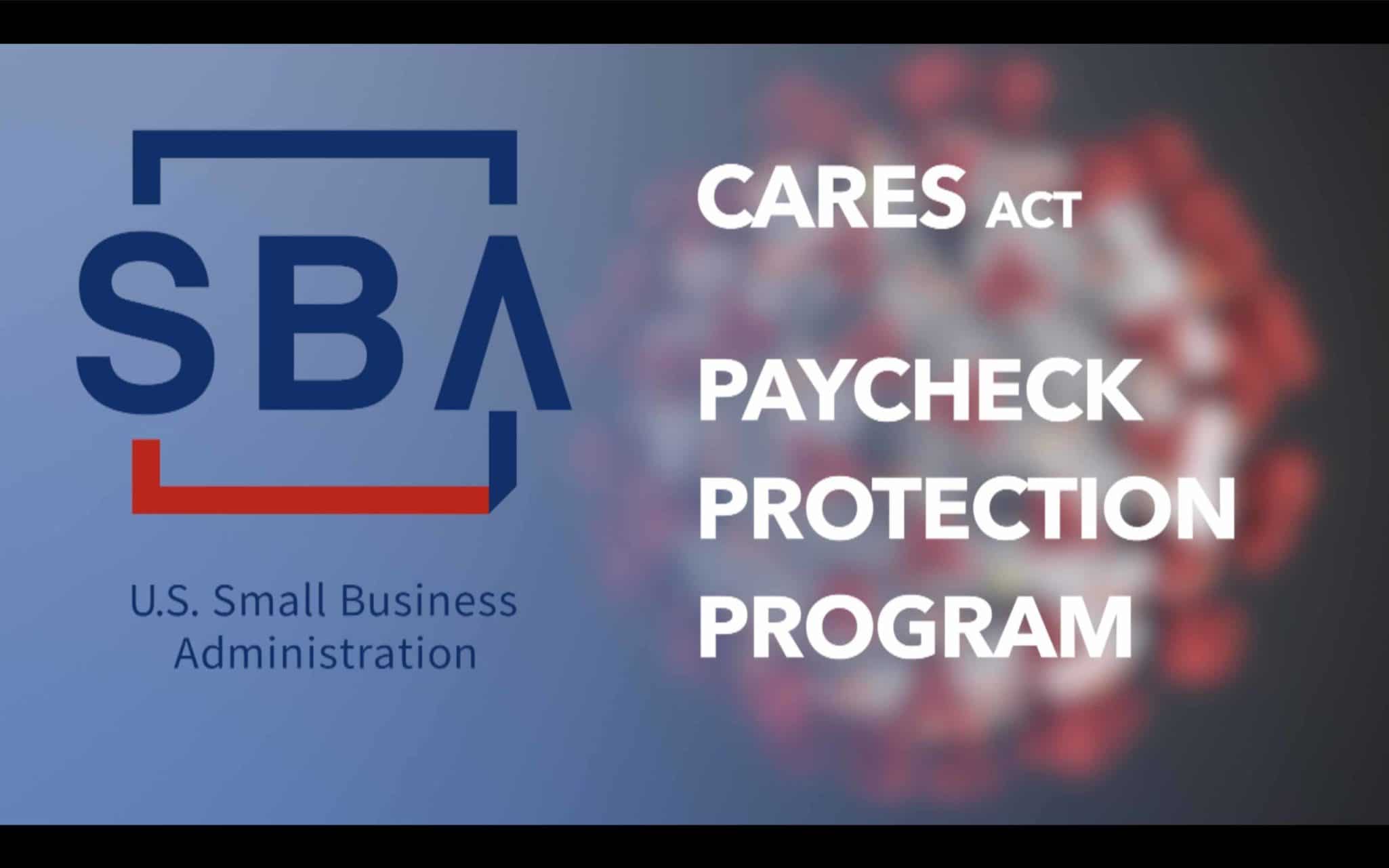
PPP Loan Period For Small Businesses
Until March 9, businesses with fewer than 20 employees will have exclusive access to apply for PPP loans.
On February 22, 2021, the Biden-Harris administration announced the following changes to the PPP program to further promote equitable access to relief. Please click to read the White House Fact Sheet.
- Institute a 14-day period, during which only businesses with fewer than 20 employees can apply for relief through the Program.
- The 14-day period will start on Wednesday, February 24, 2021 at 9 am and end on March 9th, 2021. Loans with 20 or more employees will be rejected during this period.
- All loans (regardless of employee count) submitted to SBA prior to February 24th will be processed as normal.
- Help sole proprietors, independent contractors, and self-employed individuals receive more financial support.
- A change to the calculation formula will be implemented to help sole proprietors, independent contractors, and self-employed individuals receive more financial support.
- Eliminate a restriction preventing small business owners with prior nonfraud felony convictions from obtaining relief through the PPP.
- Eliminate the rule that prevents small business owners who are delinquent on their federal student loans from obtaining relief through the Paycheck Protection Program.
- Allow non-citizen small business owners who are lawful U.S. residents to use individual taxpayer identification numbers (ITINs) to apply for relief.
Treasury/SBA are working on program changes and will communicate details throughout this week, according to a fact sheet provided by Georgia Primary Bank.
If you have questions regarding your PPPSD application please contact your assigned PPP Lender directly. Your lender will be able to answer Treasury/SBA policy questions, however lenders are unable to provide any tax or accounting advice outside of written Treasury/SBA guidelines. Georgia Primary Bank encourages borrowers to contact their CPA, Bookkeeper or the local Small Business Development Center for help with technical questions.

SBA Loan Payment Subsidies: Good News for Business Buyers
For business purchasers, there’s good news from the SBA. They’re offering loan payment subsidies for certain loans.
For new SBA 7(a), 504, or microloans approved by SBA beginning February 1, 2021 and ending on September 30, 2021, the SBA will make the monthly payments for a 3-month period. This was originally 6-month period, and this is subject to the availability of funds, according to GABB member Susan Kite, who is also Senior Vice President of SBA Business Development at Georgia Primary Bank.
Loans must be fully disbursed and in regular servicing before the payments can begin. New loans approved by SBA beginning February 1, 2021 and Ending on September 30, 2021 will also have the SBA Guaranty Fee Waived, according to Kite.
“This is a savings of $13,500 on a $500,000 loan, or $31,500 on a Million-Dollar loan, $65,000 on a $2 Million loan, and capped at $4,166,666 loan with 90% guaranty which saves $138,125,” Kite said.
These programs will remain as long as funding lasts, she says.
“Thus, your buyers should treat them as a “bonus” and not rely on them fully when determining cash needs,” Kite advises business brokers.
7(a), 504, and Microloans
Initial Debt Relief Assistance
As a part of the CARES Act, SBA was initially authorized to pay 6 months of principal, interest, and any associated fees that borrowers owe for all 7(a), 504, and Microloans reported in regular servicing status (excluding PPP loans). This debt relief to borrowers was originally dependent on the loan being fully disbursed prior to September 27, 2020 and does not apply to loans made under the Economic Injury Disaster Loan (EIDL) program.
These original provisions were amended on December 27, 2020 through the Economic Aid to Hard-Hit Small Businesses, Non-Profits and Venues Act (Economic Aid Act). The Economic Aid Act revised the eligibility criteria for assistance to include all 7(a), 504, and Microloans approved up to September 27, 2020 even if not fully disbursed. All other provisions for initial debt relief remained the same.
Borrowers need not apply for this assistance. SBA provides this assistance automatically as provided below:
- For loans not on deferment, SBA will make monthly payments based on the next payment due on eligible loans for a total amount equivalent to no more than 6 months of installment payments.
- For loans currently on deferment, SBA will begin making monthly payments with the first payment due after the deferment period ends for a total amount equivalent to no more than 6 months of installment payments.
SBA has notified 7(a), 504, and Microloan Lenders that it will pay these borrower loan payments. Lenders are to report to SBA periodically on the amounts due once a loan is fully disbursed. Payments collected after March 27, 2020 may be applied to the outstanding loan balance or returned to the borrower at the borrower’s discretion.
Additional Debt Relief Assistance
The Economic Aid Act also authorized additional debt relief payments to 7(a), 504, and Microloan borrowers beyond the 6-month period prescribed in the CARES Act. The level of assistance varies based on when the loan was approved and will begin on or after February 1, 2021. Please contact your Lender for questions on the availability of this assistance for your SBA loan.
THE INITIATIVES DESCRIBED ABOVE ARE LIMITED TO THE LEVEL OF AVAILABLE FUNDING PROVIDED BY CONGRESS.
For current SBA Serviced Disaster (Home and Business) Loans: If your disaster loan was in “regular servicing” status on March 1, 2020, the SBA is providing automatic deferments through March 31, 2021.
What does an “automatic deferral” mean to borrowers?
- Interest will continue to accrue on the loan.
- 1201 monthly payment notices will continue to be mailed out which will reflect the loan is deferred and no payment is due.
- The deferment will NOT cancel any established Preauthorized Debit (PAD) or recurring payments on your loan. Borrowers that have established a PAD through Pay.Gov or an OnLine Bill Pay Service are responsible for canceling these recurring payments. Borrowers that had SBA establish a PAD through Pay.gov will have to contact their SBA servicing office to cancel the PAD.
- Borrowers preferring to continue making regular payments during the deferment period may continue remitting payments during the deferment period. SBA will apply those payments normally as if there was no deferment.
- After this automatic deferment period, borrowers will be required to resume making regular principal and interest payments. Borrowers that cancelled recurring payments will need to reestablish the recurring payment.
If you have questions about your current loan and whether or not your loan is automatically deferred, please contact your Loan Servicing Office directly using the following information:
- Birmingham Disaster Loan Servicing Center:
- Phone: 800-736-6048
- Email: BirminghamDLSC@sba.gov
- El Paso Disaster Loan Servicing Center:
- Phone: 800-487-6019
- Email: ElPasoDLSC@sba.gov
Read More

